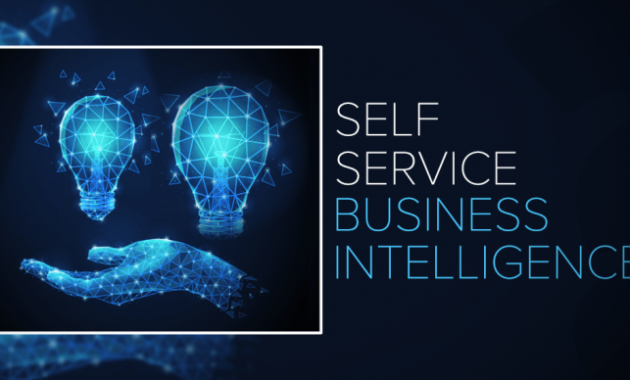
Self-Service Business Intelligence Software: The Future of Reporting
In today’s fast-paced business environment, data is the lifeblood of informed decision-making. However, the traditional methods of generating reports, often relying on complex spreadsheets and IT departments, can be slow, cumbersome, and prone to errors. This is where self-service business intelligence (BI) software steps in, offering a revolutionary approach to data analysis and reporting. This article delves into the world of self-service business intelligence software, exploring its benefits, features, and impact on businesses of all sizes. The goal is to understand how this software is simplifying reports and empowering users to make data-driven decisions.
The Evolution of Business Intelligence
Business intelligence has come a long way. Historically, BI was the domain of highly specialized analysts and IT professionals. They would collect, clean, and analyze data, then create reports for executives. This process was time-consuming and often led to delays in accessing critical information. The rise of self-service business intelligence software has democratized data access, putting the power of analysis directly into the hands of business users.
What is Self-Service Business Intelligence Software?
Self-service business intelligence software empowers users to analyze data independently. It provides tools and features that allow individuals to create their own reports, dashboards, and visualizations without relying on IT or data experts. This software typically offers a user-friendly interface, drag-and-drop functionality, and pre-built templates to simplify the report creation process. The core function of this tool is to help people create reports.
Key Features of Self-Service BI Software
Self-service business intelligence software boasts a range of features designed to streamline the reporting process. These features contribute to its effectiveness. Understanding these features is key.
- Data Integration: The ability to connect to various data sources, including databases, cloud services, and spreadsheets.
- Data Preparation: Tools for cleaning, transforming, and shaping data to ensure accuracy and consistency.
- Data Visualization: A wide array of charts, graphs, and dashboards to present data visually.
- Report Creation: Drag-and-drop interfaces and pre-built templates to simplify report building.
- Data Exploration: Interactive tools that allow users to drill down into data and uncover insights.
- Collaboration and Sharing: Features that enable users to share reports and collaborate with colleagues.
- Mobile Access: Access reports and dashboards on mobile devices.
Benefits of Using Self-Service BI Software
The adoption of self-service business intelligence software offers numerous advantages for businesses. These benefits contribute to its increasing popularity.
- Faster Decision-Making: Access to real-time data and insights enables quicker and more informed decisions.
- Increased Efficiency: Reduces reliance on IT and data analysts, freeing up their time for other tasks.
- Improved Data Literacy: Empowers business users to understand and utilize data effectively.
- Enhanced Collaboration: Facilitates collaboration and sharing of insights across teams.
- Cost Savings: Reduces the need for expensive data analysis services and IT support.
- Better Business Outcomes: Drives improved performance and profitability through data-driven strategies.
How Self-Service BI Software Simplifies Reports
The primary goal of self-service business intelligence software is to simplify the report generation process. It achieves this through several key mechanisms:
- Intuitive Interface: User-friendly interfaces with drag-and-drop functionality make it easy to create reports.
- Pre-built Templates: Ready-to-use templates for common reports save time and effort.
- Automated Data Updates: Automatic data refresh ensures reports are always up-to-date.
- Data Visualization Tools: Visualizations make it easier to understand and interpret data.
- Customization Options: Allows users to tailor reports to their specific needs.
Choosing the Right Self-Service BI Software
Selecting the appropriate self-service business intelligence software is crucial for success. Consider the following factors when making your decision:
- Data Sources: Ensure the software can connect to your existing data sources.
- Ease of Use: Choose software with an intuitive interface and easy-to-use features.
- Features: Select software that offers the features you need, such as data visualization, report creation, and collaboration tools.
- Scalability: Make sure the software can handle your current and future data volumes.
- Pricing: Consider the pricing model and ensure it fits your budget.
- Support: Check the availability of customer support and training resources.
Top Self-Service BI Software Providers
Several leading vendors offer self-service business intelligence software. These companies provide robust and feature-rich solutions.
- Tableau: Known for its powerful data visualization capabilities and user-friendly interface.
- Microsoft Power BI: A comprehensive BI platform that integrates seamlessly with Microsoft products.
- Qlik Sense: Offers associative data modeling and data discovery features.
- Looker: A modern BI platform that emphasizes data governance and collaboration.
- Sisense: Provides a versatile platform with embedded analytics capabilities.
Real-World Examples of Self-Service BI in Action
Many businesses have successfully implemented self-service business intelligence software. These examples showcase the software’s impact:
- Retail: Retailers use BI to analyze sales data, track inventory levels, and optimize pricing strategies.
- Healthcare: Healthcare providers use BI to monitor patient outcomes, improve operational efficiency, and identify trends.
- Finance: Financial institutions use BI to analyze financial performance, manage risk, and detect fraud.
- Manufacturing: Manufacturers use BI to track production efficiency, optimize supply chains, and improve product quality.
The Future of Self-Service BI
The future of self-service business intelligence software is bright. As technology advances, we can expect to see:
- Increased Automation: Automated data preparation and report generation.
- Enhanced Artificial Intelligence: AI-powered insights and recommendations.
- Improved Collaboration: Seamless integration with collaboration tools.
- Greater Accessibility: More accessible and user-friendly interfaces.
Conclusion: Embracing the Power of Self-Service BI
Self-service business intelligence software is transforming how businesses analyze data and make decisions. By simplifying the report generation process and empowering users, this software allows organizations to gain valuable insights. Businesses can improve performance. They can also achieve better outcomes. Embracing self-service business intelligence software is key. It is crucial for staying competitive in today’s data-driven world. [See also: How to Improve Data Literacy in Your Organization]
The shift towards self-service business intelligence software is undeniable. Businesses are realizing the value of data. They also see the power in empowering their employees. This leads to faster, more informed decision-making. Ultimately, this will drive business growth and success. The ability to create reports is easier than ever. This is all thanks to self-service business intelligence software. This simplifies the process.
By providing user-friendly tools and features, self-service business intelligence software enables non-technical users. They can create their own reports and dashboards. This eliminates the need for IT assistance. This also speeds up the decision-making process. The ability to quickly analyze data is key. This is a major advantage in today’s competitive landscape.
The ability to create custom reports is a significant benefit. Self-service business intelligence software often includes data visualization tools. These tools help users understand data more effectively. These tools also help users identify trends and patterns. These tools are great for making informed decisions. This is a major advantage for all users of the software. The software also empowers businesses.
The growth of self-service business intelligence software is a testament to its value. It is a powerful tool for simplifying reports. The software helps make data-driven decisions. It is a game-changer. This is important for businesses of all sizes. It empowers them to succeed.

